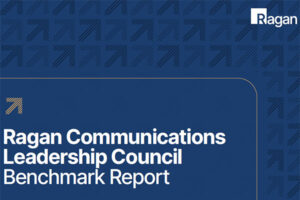Why DEIB initiatives still belong in the workplace
DEIB isn’t merely a moral obligation, but a strategic necessity.

Raven Rankine is a Diversity, Equity, and Inclusion (DEI) Specialist and leader at The Nebo Company, an international leadership consulting firm.
In 2020 organizations dove head-first into Diversity, Equity, Inclusion and Belonging (DEIB) initiatives. Almost four years later, some leaders are wondering what’s next for their DEIB work. The recent SHRM Inclusion Conference aimed to answer this question and shed light on the path forward for organizations, aiming to inspire HR leaders, DE&I Practitioners, and stakeholders to champion DEIB in workplaces.
The core message resonated strongly: DEIB should be ingrained in an organization’s DNA. Diversity, equity, and inclusion initiatives are essential for ensuring every employee feels supported and valued. Data from a Benevity study reinforces this:
- 90% of respondents found personal benefit from DEI initiatives.
- 92% agree companies should help employees recognize biases.
- 87% feel more loyal to organizations prioritizing DEI.
- 78% would only work for companies paying more attention to DEI efforts.
These numbers underscore that DEIB isn’t merely a moral obligation, but a strategic necessity. It’s crucial for both business and society. As leaders plan for 2024, and start to think about their approach to DEIB, here are a few key points they should keep in mind.
- Perfection, as an ideal, has no place in the context of DEIB.
Striving for a perfect workplace is futile. Every organization will have issues. However, embracing continual improvement over perfection fosters an environment where employees can thrive in diversity. The notion of a “one and done” approach hinders progress.
- Diversity is a catalyst for growth, but it also gives rise to conflicts.
While diversity sparks growth, it can lead to conflicts due to differing values and perspectives. To harness diversity’s benefits, staff and leaders must acquire conflict management and dialogue skills to redirect conflicts toward shared goals.
- In the pursuit of an inclusive workplace, organizations should shift their hiring philosophy from “culture fit” to “culture add.”
Inclusion should embrace differences from the very start of the employment journey. The idea that a prospective employee needs to fit into an existing culture is exclusive. Instead, organizations should focus on values, purpose, and a shared code of conduct to connect their team members. This approach welcomes different behavioral styles and beliefs while still maintaining a cohesive culture.
- Inclusion is not a separate entity from leadership; it’s an integral part of it.
Leadership must integrate inclusion seamlessly. Effective leadership requires a people-centric, inclusive approach. Job descriptions and leadership assessments need revamping, coupled with substantial investment in leadership development.
Approaching 2024, prioritizing DEIB in strategic plans and budgets remains crucial. Continually weaving DEIB principles into organizational fabric is key to fostering a diverse and inclusive workplace and should be a priority for leaders in the year ahead.
As organizations approach 2024, the resounding message is clear: Diversity, Equity, Inclusion, and Belonging (DEIB) initiatives are not a passing trend but a strategic imperative. The Benevity study underscores the tangible benefits, with overwhelming support for DEI efforts.
Acknowledging imperfections, cultivating conflict management skills, and shifting from a “culture fit” to “culture add” hiring philosophy are key. Inclusion is not a separate entity but an integral part of leadership.
As leaders plan for the future, weaving DEIB principles into the organizational fabric remains crucial, not just as a moral obligation but as a strategic necessity. In doing so, organizations pave the way for success in the dynamic landscape of 2024, fostering a workplace where diversity thrives, equity prevails, and every individual finds a sense of belonging.
While planning for the future to further level up your DEIB strategies, register for Ragan’s Diversity Equity and Inclusion Certificate Course for Communicators before the first virtual course begins on Jan. 17th!







Wow – really appreciate the perspective here about “culture add” vs “fit.” I’m seeing culture continue to be used as a loophole for the sameness of staff in organizations, but that concept is a good way forward!